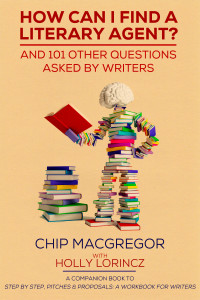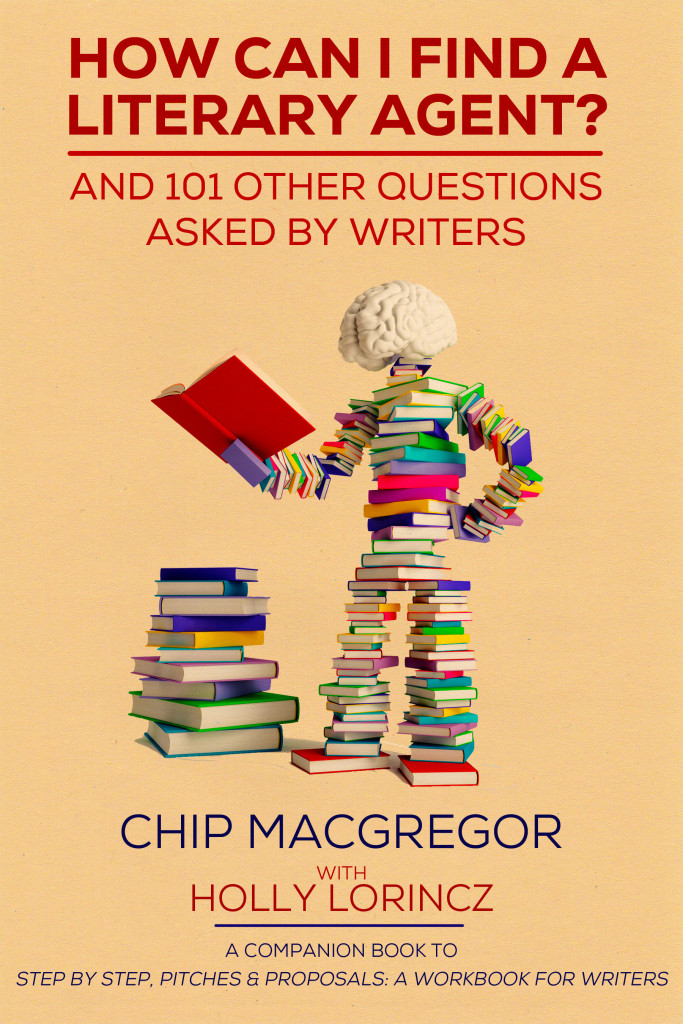-
Continue Reading "Literary Devices for the Real World: Flashbacks"
Literary Devices for the Real World: Flashbacks
Hello, class, and welcome to week 1 of “Literary Devices for the Real World.” Over the next several weeks, I’ll be talking about how to best use literary devices in your writing to better serve your story and improve your craft. This week: flashbacks.
Flashbacks are one of the most commonly used literary devices, and one that can take many forms. Put simply, a flashback is a reference to or depiction of events having occurred before the “present day” of the story. Flashbacks can be external– referencing events from a character’s life before the point at which the current narrative began– or internal– referencing events that happened within the current narrative– and can occur in dreams, recall (“my father used to smoke a pack a day”), or full, immersive scenes from the past incorporated into the present-day narrative.
Flashbacks serve to provide the reader with background information on a setting or conflict and to increase the reader’s sympathy for and understanding of a character. They can also increase the tension or suspense surrounding the current events of the story by creating curiosity about what happened between the past and the present to change things– if the main character flashes back to standing in her wedding dress at the back of a church yet in present-day the character is unmarried, the reader will know something has happened between the two realities and will want to find out what it was– divorce? Death? Left at the altar? Prologues often take the form of a flashback, starting off the book with an important scene from the past that sets up a conflict or introduces a concept or an object that will be important in the present-day story.
Most authors use flashbacks extensively in their storytelling. Even if you don’t feel like you’re spending huge amounts of time in the past, you’re most likely constantly making reference to formative events and experiences when writing
-
Continue Reading "Lessons from the Diving Board (a guest blog)"
Lessons from the Diving Board (a guest blog)
When I was a kid, my mom signed me up for a diving class. All the beginner classes were full, so she put me in an advanced class. I guess she thought I could learn to dive from the end of a board over the deep end just as well as I could from the side of the pool. I remember doing my fair share of painful dives, and hitting my head a few times. Within six weeks, though, I was doing inwards and back flips with relative ease.Writing a first book about Martin Luther, a man well covered by the most imminent of scholars, was a little like my first inward dive–naïve, driven, and far outside my realm of experience.I decided to write a book about Martin Luther while homeschooling. We use a literature-based curriculum, and I just didn’t see a lot of truly great options for older kids to learn about Luther. His story is exciting. I mean, there are knights, war, kidnapping, dramatic escapes, drama, and intrigue. What kid wouldn’t want to read about that? I wanted to write about it–to truly tell his story in a way that communicated all the excitement of Luther’s life and times, without glossing over his character and later life decisions.My first attempt at Luther was aimed at lower elementary kids, and I took it to my debut writer’s conference, knowing that if I could just communicate the need for narrative biographies for early readers, I could write a whole line of them. After all, such lines exist for important historical secular figures. I knew I was way out on the end of the diving board, but I figured I would at least try. I’m pretty sure I was shaking all four days.I learned a lot that first conference (where I met Chip, whom I really enjoy), and I went home to write a biography about Martin -
Continue Reading "Literary devices for the real world"
Literary devices for the real world
Welcome back to my Tuesday blog on craft! Thanks to Aubrey for giving me the idea for my new series by suggesting I post on foreshadowing and flashbacks– when to use them, when to avoid them, etc. I thought I’d use that as a jumping off point for a longer series on recognizing literary devices in your writing and using them effectively, and if that sounds like a nightmare flashback to high school English, that was intentional– hear me out before you click back over to Facebook.
We all took the same high school and college English classes in which we pointed out allegory and symbolism and foreshadowing in the same twelve pieces of literature, hand-picked because they provided the most blatantly recognizable examples of those symbols. Out in the real world, however, in the absence of the flashing neon lights of the textbook’s prompts and the teacher’s hints, we don’t always recognize those literary devices when they show up in our writing, and so we miss the opportunity to really develop them/use them most effectively. As an agent, I see writing all the time that is “almost there–” if the author just dug a little deeper in the characterizations, if he just developed the point of view a little more clearly, if she just found a little more consistency in tone, this manuscript would be great! But when I give that feedback to these same authors, too often their response is the email equivalent of a blank look– “How would I describe my tone? Um… sad, I guess? Or maybe dark. But it’s funny in places– can a tone be funny and sad? Do you mean tone as in, ‘leave a message after the?'” And so on. Without a clear understanding of tone and what determines it, an author is pretty powerless to evaluate it in his work and to strengthen/improve it if needed, and the same goes for
-
Continue Reading "The Most Important Thing You’ll Write in 2016"
The Most Important Thing You’ll Write in 2016
Well, after that shamelessly click-bait title, let me go on record right away that I’m not about to tell you what the next million-dollar-idea is and how to write it– sorry. After taking a break over the holidays (“holiday” being a word which here means “any Tuesday on which I don’t have a good idea for a blog post”), I’m back to blogging weekly about craft, and looking forward to all the good writing discussion to come in the new year on the newly revamped blog!
Today’s topic is one that will make some of you excited and inspired and others of you rebellious and bad-tempered, and that’s fine– we welcome all kinds of writers here, though obviously, any comments which disagree with me will be deleted immediately. I want to talk about the practice of writing down your writing goals and the role of a written goal/task list in helping you move your writing career forward. This sort of planning or “vision-casting” goes against many writers’ strong belief in spontaneity, in trusting to the creative process, but even the most seat-of-your-pants writer should take a moment to consider how a little thought and a written plan of action can mean the difference between stagnation and momentum as a writer.
I love making lists. I can’t leave for a trip without making a giant list on my phone of everything I want to remember to bring and then referring to that list every 3 seconds on the morning of departure. If I need more than two things at the grocery store, I make a list. If I see a pretty notepad in a dollar bin at Michael’s or Target, I will buy four, so I can make more lists. If I run out of notepads, I write “notepads” on a list. You get the idea. Some people are like that– we get immense satisfaction out of organizing our lives on
-
Continue Reading "Predictions for Publishing in 2016 — the Year of “More”"
Predictions for Publishing in 2016 — the Year of “More”
Behold! Our new-look website. We’ve done a complete revamp of the site, with the goal of making things easier to read, easier to research, and to get back to having a cutting-edge blog that tackles the questions authors have about the world of publishing. Glad you are joining us! (And if it’s not quite done, or have all the edges squared up yet… well, we’re working on it.)
Let me start the new year with my The Predictions for Book Publishing in 2016…
- We’re going to see more rights sales. I think both traditional and indie publishers are going to push for more global sales, push for more audio books, and push for more variety projects (like coloring books) in 2016, which is good news for authors. It means there are more opportunities to make some income.
- We’re going to see more of iBooks. While Amazon is the 800-lb gorilla of ebooks, their shopping experience has always left a lot to be desired. I think this is the year Apple figures out how to improve the shopping experience and makes iBooks a destination spot for readers.
- We’re going to see more people reading on mobile devices. I know we keep hearing about the growth of print in 2015, but I think that was tied to the fact that the Big Five simply started charging so much more for ebooks, readers fell back to buying print. I think we’re going to see new technology and new interest from readers who want to go mobile.
- We’re going to see more short works. People who like USA Today like short pieces. And if people are reading on their phone or pad, they want short books. I think the rise of the 40k-to-45k novel is upon us.
- We’re going to see more interest in China. The country is opening up, and publishers are just now starting to figure out how to get books in
-
Continue Reading "A Christmas Break"
A Christmas Break
Hey, it’s Christmas. Nobody in publishing really works much over the Christmas break. On top of that, we’re in the midst of a major overhaul of our website and blog, so in a week or two, you’re going to see an all-new look on this site. And on top of THAT, Chip is having shoulder surgery, so he’s going to be down for the next couple of weeks. But we’ll be back soon, with a new look, new questions, new posts, and a whole new vibe. Thanks for sticking with us… and MERRY CHRISTMAS!
—The MacGregor Literary team
-
Continue Reading "A Thank You to the English Teachers"
A Thank You to the English Teachers
In honor of Thanksgiving (and because I haven’t come up with a new series idea yet), I thought I’d take the opportunity today to say thank you to some folks who played a big part in helping me become a person who loves words and stories and commas and gets to work with them every day; namely, my high school English teachers.
Some of you might have seen my post last year about Miss Stinson and the journals we kept for English 9, and how her encouragement and creativity and restraint in not rolling her eyes at every third word I wrote gave me a lasting sense of worth regarding my writing– not that I left English 9 thinking that everything I wrote had worth, but I left knowing that writing was something worth doing, not because of the result, but because of the process, and the freedom, and the way in which finding the right words can bring order out of chaos in the way the right words brought dry land out of the deep in the beginning. If there’s a group in greater need of a little order in the midst of personal chaos than high school freshmen, I’m not sure who they are, and we loved Miss Stinson for giving us that means of bringing some order to our chaos. (She also accidentally cussed once in class– I doubt anything could have earned our loyalty more quickly.)
Mrs. Baldwin’s love of story was more infectious than any teacher I’d ever had– even the slackers read the books for her class just so they wouldn’t be left out of the passionate (and occasionally violent) discussions about whether Our Town was boring or brilliant or whether or not Jay Gatsby was an antihero. She connected the stories we read in American Literature to her own life and her own past, and by doing so gave us sheltered, dumb, narcissistic
-
Continue Reading "What do I need to know about agents?"
What do I need to know about agents?
Someone wrote to ask, “With all the changes in publishing these days, what do I really need to know about agents?” Let me offer a dozen thoughts…
1. Do your homework before selecting an agent. DON’T sign up with somebody just because they say
 they’re an agent and they want to represent you. I know that’s a temptation, but this is a professional relationship. Would you go to a guy’s office for your health problems just because he claims to be a doctor? Ask around. Check him out. This is the biggest mistake people make with agents, in my view. This past year at ACFW you could toss a rock in the air and when it came down it would most likely hit somebody claiming to be an “agent.” Um… these guys are going to be taking your ideas and helping you sign legal agreements regarding them. Don’t take that lightly.
they’re an agent and they want to represent you. I know that’s a temptation, but this is a professional relationship. Would you go to a guy’s office for your health problems just because he claims to be a doctor? Ask around. Check him out. This is the biggest mistake people make with agents, in my view. This past year at ACFW you could toss a rock in the air and when it came down it would most likely hit somebody claiming to be an “agent.” Um… these guys are going to be taking your ideas and helping you sign legal agreements regarding them. Don’t take that lightly.2. Be wary of any agent who charges a fee or advertises what the charge is to work with them. That’s a total violation of the guidelines for the Association of Author Representatives (and, in fact, those agents wouldn’t be allowed as members of AAR). There are a couple fairly successful agents in CBA who do that. It’s unethical, and authors should stay away, if they want to keep from being scammed. On the other hand, I was VERY glad to have someone write and tell me that “Steve Laube is my agent and he’s good.” Don’t we all get tired of people sort of beating around the bush, telling us one person is bad and another is good, but never mentioning names? The fact is, Steve IS good. So is Bryan Norman at Alive, as well as Janet Grant and Wendy Lawton and Rachelle Gardner and Natasha Kern and Greg Daniel and Karen Solem and Greg Johnson and Andrea Heinecke and Robert Wolgemuth and Sandra Bishop and Amanda
-
Continue Reading "A Natural Born Writer (a guest blog)"
A Natural Born Writer (a guest blog)
Last spring, I was sitting in a class offered by a nationally renowned writing coach at a local writers conference. The coach was leading us as we brainstormed a story. The set-up—an English teacher who hated his job. “Why does he hate his job?” she asked the room.
I quipped, “None of his students know where the commas go.”

I was joking, and my friends laughed, because they know how I am about grammar. The word “Nazi” has been floated more than once.
The writing coach laughed, too. And then she said something I can still hear ringing in my ears. “Knowing where the commas go isn’t really that important.”
I didn’t argue the point at the time. Not out loud, anyway. From her perspective, grammar wasn’t important. She was there to teach us plotting and story crafting—and I was taking copious notes. But the idea that a bestselling author would say that grammar doesn’t matter gave me nightmares.
The fact is, knowing where the commas go is incredibly important. So is knowing how to spell. Knowing how to write fresh dialogue is vital to being a novelist, and so is the ability to punctuate it. Of course, no great novel exists without believable yet larger-than-life characters. And even with all that, if the plot is broken, the book will flop.
The truth is, there are thousands of things writers have to understand. And lest we feel sorry for ourselves, there are thousands of things agents have to know—and editors and airline pilots and real estate brokers. Being a professional at anything involves knowing a bunch of stuff.
And most of that stuff has to be learned. As a novelist, perhaps you started with some skills. Maybe you had an inherent understanding of point of view. Maybe you came to the game with a unique voice. Some folks are great at creating quirky characters. Personally, I came to this quest
-
Continue Reading "Can the Audiobook Save B&N?"
Can the Audiobook Save B&N?
This week in Publishing & Technology we’ll be talking about audiobooks. As Yasmine Askari reported on the Digital Book World last week, Barnes & Noble recently announced the launch of a Nook audiobooks app for iphone and ipad, as well as a new website to support the app with more than sixty thousand audio titles available to download without the purchase of a subscription. I’ll leave the prognosticating around whether or not this will be the magic bullet that saves Barnes & Noble from the same fate as Borders to smarter industry analysts. I’m more concerned with the audiobook as a product and it’s future in publishing.
My first attempt to get into audiobooks revolved around my year and a half stint covering the Inland Northwest territory as a B2B salesperson calling on grocery stores from the eastern side of the Washington Cascades all the way to the Billings, Montana – a vast, beautiful, and relatively empty landscape. I would sometimes drive as much as six hours in between sales calls, this in the days before rental car stereos came with audio jacks and in a land with almost no local radio signals. It was dull. So, I tried to spice up the windshield time by bringing along one of those suitcase-sized collection of audiobook CDs.
I couldn’t tell you the title or author of that book so many years later. What I can tell you is that I almost died listening to that book, lulled to sleep while driving a desolate Montana two-lane highway by the sultry voice of whomever was narrating. Like so many people, I walked away from the whole audiobook thing because of lack of convenience and a love of reading the actual text and fleshing out the characters with the voices my imagination created for them in my head. I figured that audiobooks were fine for older folks losing their sight, or for drivers that





